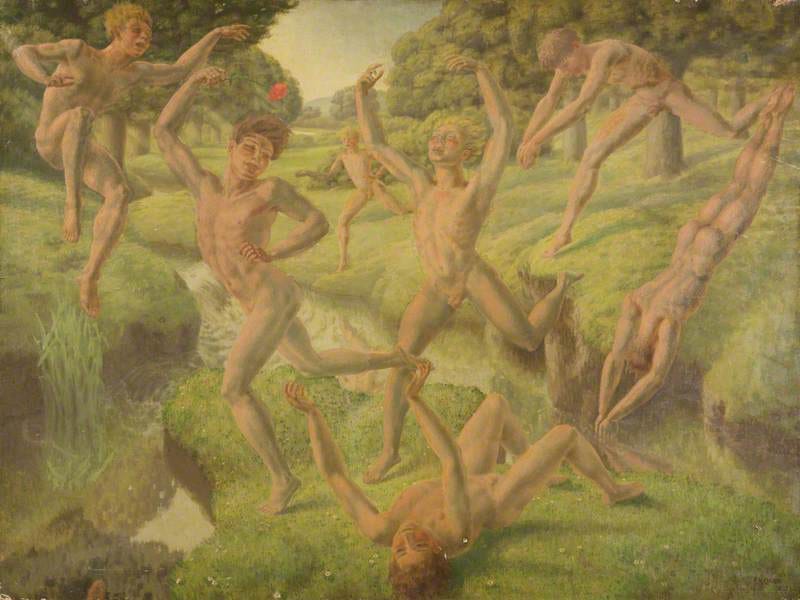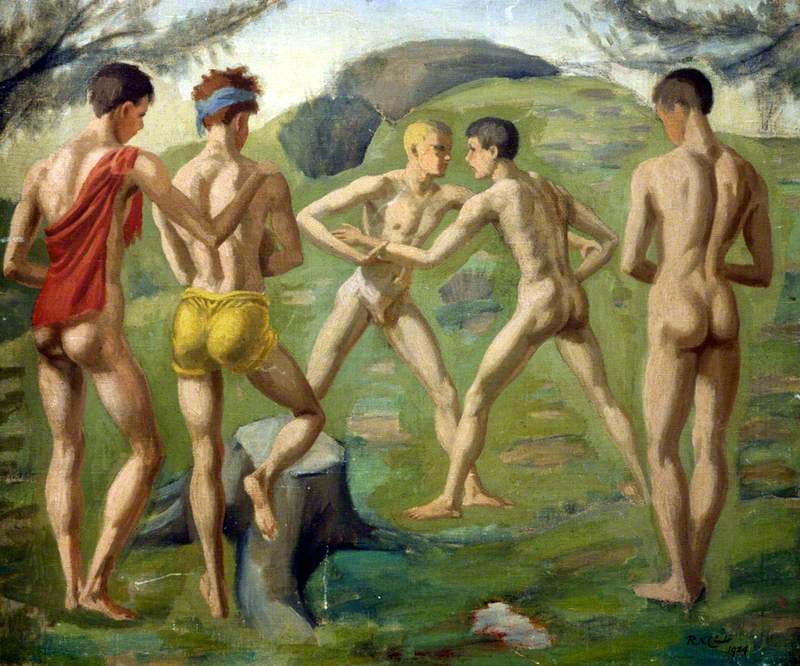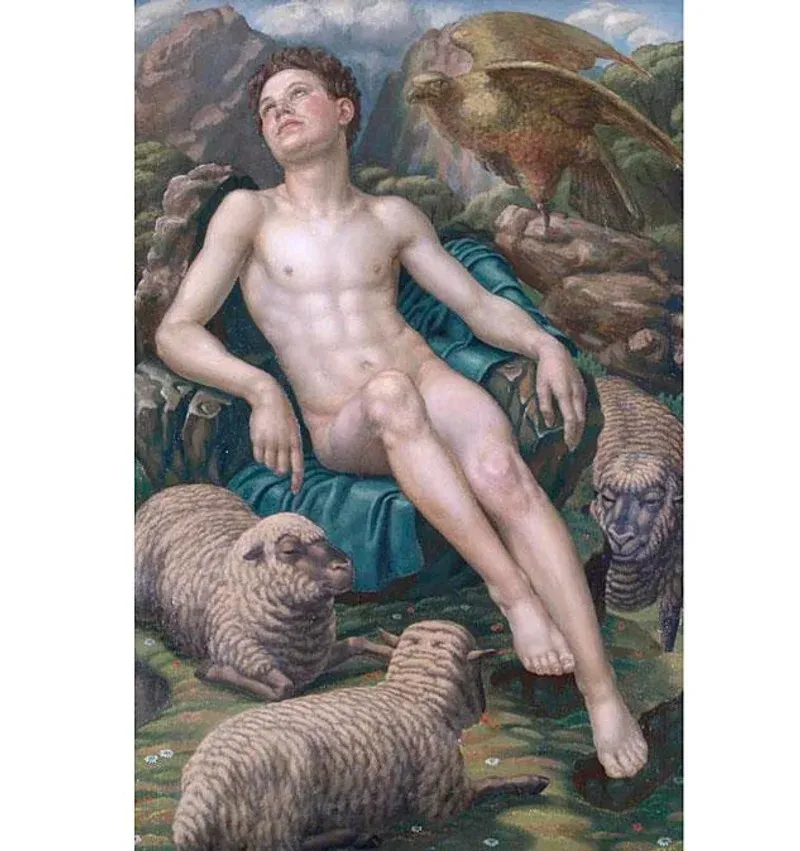100 Heroes: Ralph Chubb
The gay man who created a personal mythology as a sexual revolutionary.

Ralph Chubb was an English poet, printer and artist.
His work was the creation of a highly intricate personal mythology, one that was anti-materialist and sexually revolutionary.
Life and work
Chubb was born in Hertfordshire and grew up in St Albans.
After studying at Cambridge, he became an officer in the First World War in which he served until 1918 when he was invalided out.
After the war, Chubb studied art - working as a painter and then a writer and publisher.
His major painting The Well (1920) features men bathing and boys wrestling. A number of his works featured male nudes - reflecting a lifelong obsession with young men.
He expands upon this theme more explicitly in An Appendix, a sexual and spiritual manifesto.
Following the second world war, Chubb ramped up his writing, increasingly focusing on his mythology.
Other themes run through all of Chubb's work.
Chubb's work reflected that he was fixated by the memory of a young chorister at St Albans who disappeared from Chubb's life just as he had summoned up the courage to speak to him. Similarly, a brief sexual relationship with another boy when Chubb was 19 seemed to serve as a template for future visions of paradise.
Chubb's books become progressively more self-involved and paranoid. Seeking to articulate his sexual desires, he created a personal mythology which explained everything in terms only he could understand. Nonetheless, Chubb's work is significant - each of the various angels, knights, seers, and gods in his dream-world represents an aspect of his introspective and persecuted self.
"The green green hills, the blue blue sky, blue sea, great golden SUN, yellow dandelions, the pink naked beauty of ripe boyhood, deathless free and happy, brimming with health. This I must have. Nothing less than this can ever satisfy me! GIVE ME MY HEAVEN! GIVE ME MY HEAVEN!" (Water-Cherubs)
Failing in health and facing continuing legal and financial difficulties, Chubb abandoned his controversial works in the mid-fifties, and began to collect and reprint his early poems and childhood memories.
In the final years of his life he donated his remaining volumes to the national libraries of Britain.


